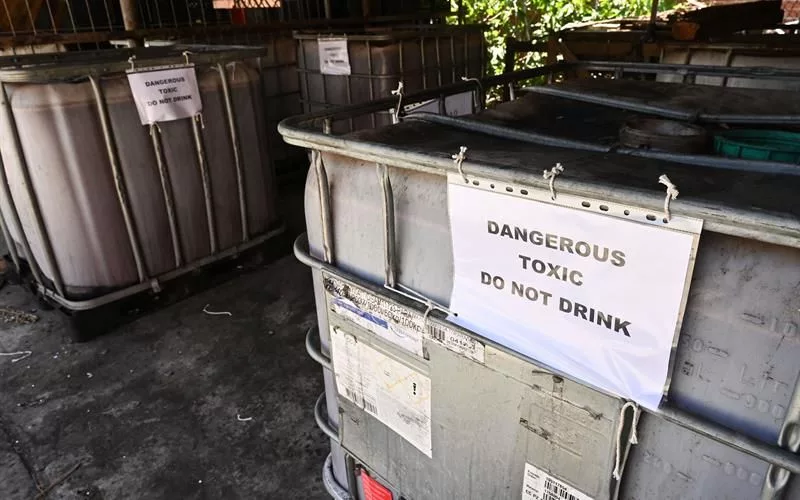The city enforces strict by-laws that prohibit public alcohol consumption during festive seasons. Law enforcement confiscates thousands of liters of alcohol to ensure safety, and the process is rigorous to ensure accountability. City officials and citizens must work together to tackle the deeper societal issue of alcohol abuse and ensure a safe and enjoyable holiday experience for all. The collective effort is crucial, and individuals must adhere to by-laws and abstain from consuming alcohol in public spaces to contribute to a delightful celebration.
Is public alcohol consumption legal during festive seasons?
No, public alcohol consumption is illegal during festive seasons and throughout the year as per the city’s by-laws. City enforcement services seize thousands of liters of alcohol during peak holiday seasons to ensure public safety. The Law Enforcement Liquor Unit recently disposed of more than 8,000 liters of alcohol in preparation for another wave of confiscations. City officials and citizens need to work together to ensure a safe and enjoyable holiday experience for everyone.
Preparing for the Festive Season: A Daunting Task
As festive celebrations begin, city authorities and law enforcement brace themselves for the yearly challenge of curbing alcohol consumption in public areas and recreational spaces. This issue has been a persistent concern, particularly during peak holiday seasons. Over time, city enforcement services have seized thousands of liters of alcohol to ensure public safety and enforce the city’s by-laws, which strictly forbid bringing and consuming alcohol in public places.
In anticipation of the upcoming festive season, the Law Enforcement Liquor Unit has recently disposed of more than 8,000 liters of alcohol. This substantial disposal indicates city staff are gearing up for another wave of confiscations, as public alcohol consumption typically increases during the holidays.
City’s Mayoral Committee Member for Safety and Security, Alderman JP Smith, highlights the immense strain alcohol abuse puts on enforcement and emergency services. He underscores that these services must deal with the fallout from individuals’ reckless behavior, particularly when intoxicated drivers take to the road. As the end-of-year festivities approach, Alderman Smith reiterates that public drinking remains illegal, citing numerous instances where such conduct not only ruins the enjoyment of others but also puts lives at risk.
The Confiscation Process and The Debate on Repurposing
Before disposing of confiscated alcohol, enforcement officers meticulously remove the tags placed on the goods during the booking process and cross-check them against an inventory list. This rigorous procedure ensures that every bottle or can is accounted for and that the system remains strong and dependable.
A frequent debate surrounding confiscated alcohol is whether the city should repurpose it, as current legislation prohibits the resale of such goods. Alderman Smith takes a firm stance against this idea, considering it highly inappropriate for the city to reintroduce confiscated alcohol into the community. He insists that the discussion should instead center on the public’s relationship with alcohol and the continuous threat it poses to public safety.
The city’s ongoing struggle against alcohol abuse in public spaces underscores a deep-rooted societal issue extending beyond individual celebrations and festivities. The repercussions of public alcohol consumption reverberate throughout the community, affecting those who share these spaces and taxing the resources of enforcement and emergency services.
Collective Effort for a Safe and Joyful Holiday Experience
While city officials and law enforcement persist in addressing this challenge, it serves as a reminder that citizens also bear the responsibility of ensuring a safe and enjoyable environment for everyone during the festive season. By adhering to the city’s by-laws and abstaining from consuming alcohol in public spaces, individuals can contribute to a delightful holiday experience for all community members.
In conclusion, tackling the issue of public alcohol consumption demands a joint effort from both city officials and citizens. It is not merely about enforcing existing by-laws but also calls for a wider conversation around alcohol’s role in society and the potential dangers it presents. As the festive season approaches, it is vital to keep these considerations in mind and strive for a safer and more enjoyable celebration for everyone.
How does the city enforce by-laws prohibiting public alcohol consumption during festive seasons?
City enforcement services confiscate thousands of liters of alcohol to ensure public safety. The process of confiscation is rigorous to ensure accountability.
What happens to the confiscated alcohol?
Before disposing of confiscated alcohol, enforcement officers meticulously remove the tags placed on the goods during the booking process and cross-check them against an inventory list. Current legislation prohibits the resale of such goods, so the city does not repurpose it.
Why is public alcohol consumption prohibited during festive seasons?
Public alcohol consumption is illegal during festive seasons as per the city’s by-laws. The city enforces strict by-laws to ensure public safety. The city officials and citizens must work together to tackle the deeper societal issue of alcohol abuse and ensure a safe and enjoyable holiday experience for all.
What is the collective effort required to address public alcohol consumption during festive seasons?
Tackling public alcohol consumption during festive seasons demands a joint effort from both city officials and citizens. It is not only about enforcing existing by-laws but also calls for a wider conversation around alcohol’s role in society and the potential dangers it presents.
How much alcohol does the city usually confiscate during peak holiday seasons?
In anticipation of the upcoming festive season, the Law Enforcement Liquor Unit has recently disposed of more than 8,000 liters of alcohol, indicating that city staff are gearing up for another wave of confiscations.
Why does the city dispose of confiscated alcohol?
The city disposes of confiscated alcohol to ensure public safety and enforce the city’s by-laws, which strictly forbid bringing and consuming alcohol in public places.
What is the debate surrounding confiscated alcohol, and what is Alderman Smith’s stance on the issue?
A frequent debate surrounding confiscated alcohol is whether the city should repurpose it. Alderman Smith takes a firm stance against this idea, considering it highly inappropriate for the city to reintroduce confiscated alcohol into the community. He insists that the discussion should instead center on the public’s relationship with alcohol and the continuous threat it poses to public safety.
What is the impact of public alcohol consumption on the community?
The repercussions of public alcohol consumption reverberate throughout the community, affecting those who share these spaces and taxing the resources of enforcement and emergency services.








